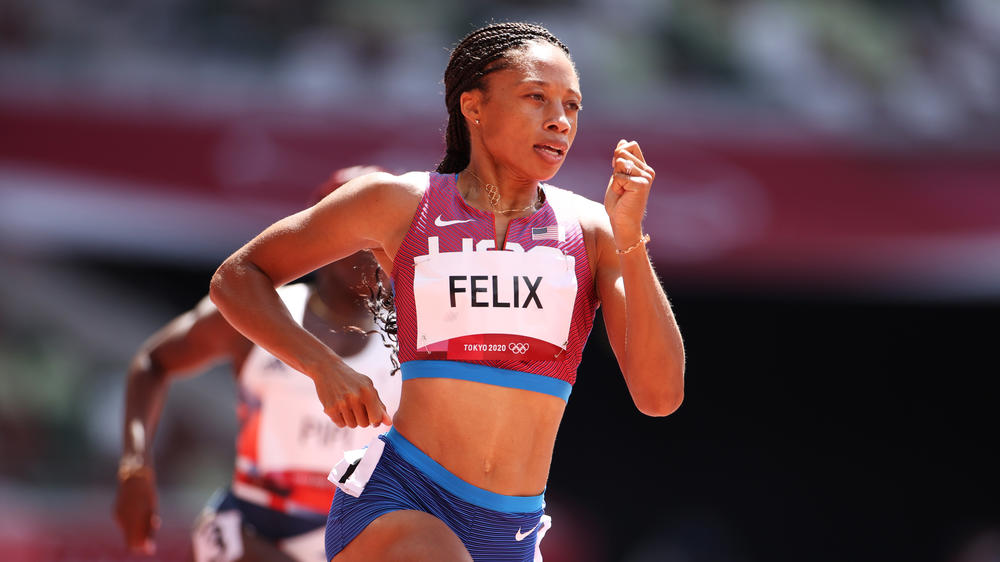Section Branding
Header Content
Child Care During Competitions Presents A Major Hurdle For Olympians And Paralympians
Primary Content
If you think parenting is stressful, imagine parenting while also competing as a Paralympic athlete.
Lora Webster, who competes in sitting volleyball, is a mother of three, with number four on the way.
"This baby is a surprise and also the timing of it. I never planned to go to Tokyo pregnant," she says.
Like most athletes, she's on her own to pay for child care during the competition. Many female athletes have to choose between parenting and competing.
But Webster just received a $10,000 grant so her mother can take care of her kids in New York while she's competing in Tokyo.
"This money is going to help us just make sure that my parents are taken care of when my mom loses those 10 days of work."
The grant is part of a $200,000 fund set up by the Women's Sports Foundation and the clothing maker Athleta. Track star Allyson Felix, an Olympic gold medal winner competing this year in Tokyo, helped establish the fund. Felix, once criticized her sponsor, Nike, for refusing to pay her while on maternity leave.
In 2019 she told Morning Edition:
"Many times, you are still doing appearances, and you're doing work on behalf of the company, and you are still training," Felix explained. "This is not just a Nike issue, this is the industry."
Webster says the child care grant made it much easier to compete.
"Having a child and expanding your family should never be a burden like this, where you have to choose between one dream and the other," Webster said, "And they've really created this opportunity where you don't have to choose."
In this year's Paralympics, she won't have to choose.
More from NPR's Leila Fadel here.
This story originally appeared on the Morning Edition Live Blog.
Copyright 2021 NPR. To see more, visit https://www.npr.org.


